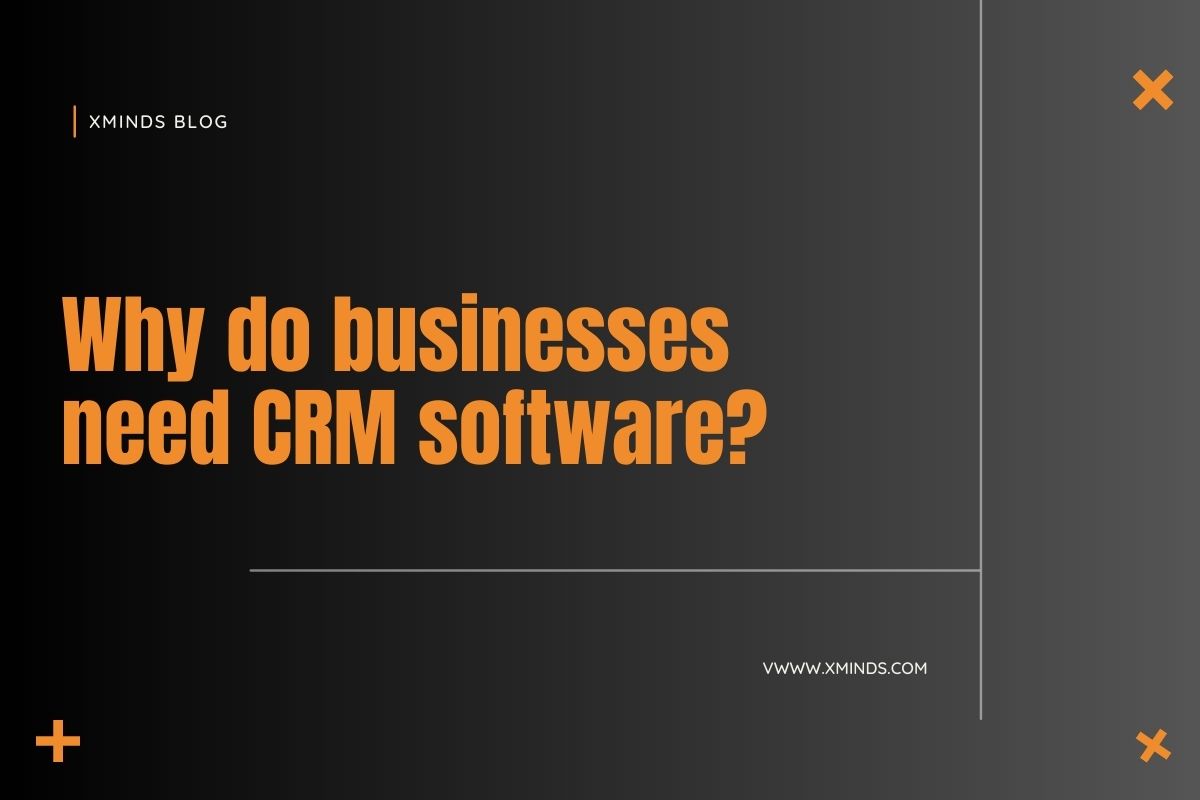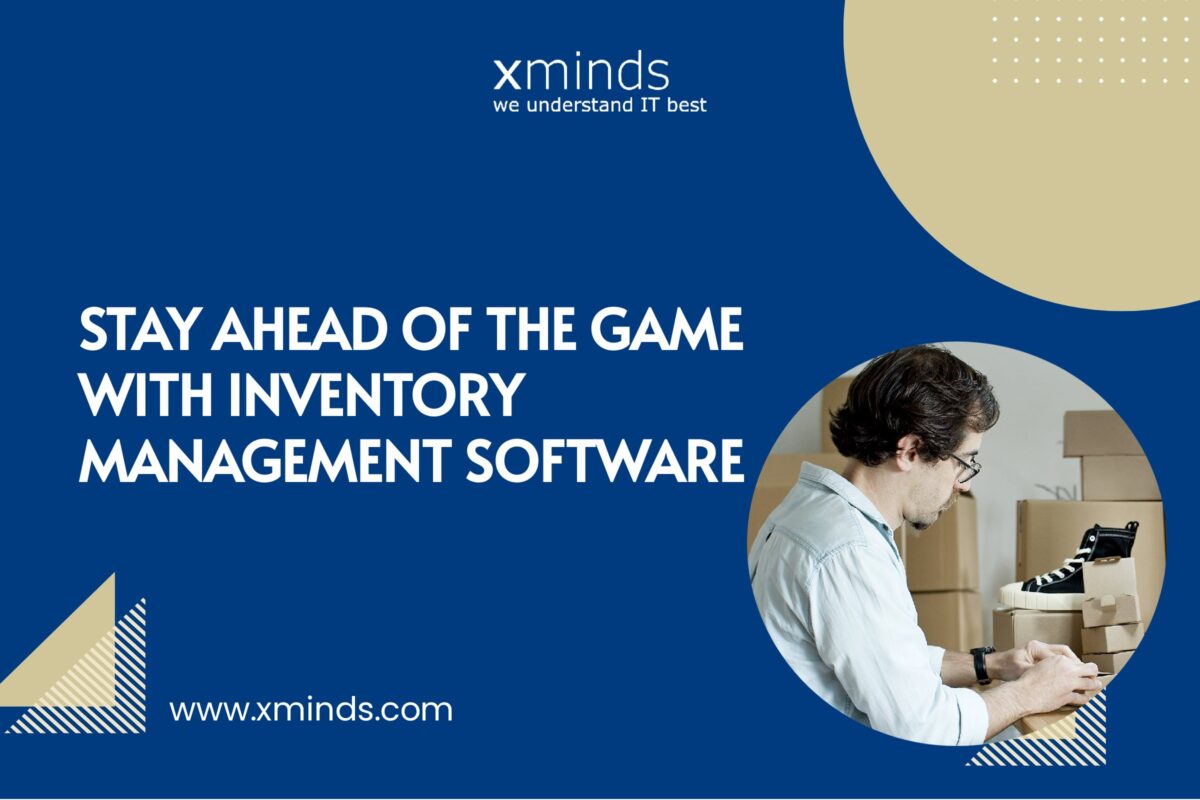Why do businesses need CRM software?

What is a CRM Software?
CRM stands for Customer Relationship Management, which is a software designed to manage a company’s interactions with its customers and potential customers. It is a tool that helps businesses manage customer information, automate sales and marketing processes, and improve customer experience.
Importance of CRM Software in Modern Businesses
In today’s highly competitive business environment, having a CRM software is essential for businesses of all sizes. It provides businesses with a centralized platform to manage customer data, improve customer relationships, and streamline sales and marketing processes. With CRM software, businesses can gather important insights about their customers, make data-driven decisions, and enhance their overall performance. Therefore, CRM software has become an indispensable tool for modern businesses that want to stay ahead of the competition and succeed in today’s dynamic marketplace.
Why do businesses need CRM software?
Improved Customer Relationship Management
a) Efficient Customer Data Management
One of the primary benefits of CRM software is that it allows businesses to efficiently manage their customer data. With CRM software, businesses can store all customer-related information in a centralized database, including contact information, purchase history, customer preferences, and interactions. This not only helps businesses to better understand their customers, but it also enables them to provide better customer service.
b) Improved Customer Interactions
CRM software can also help businesses improve customer interactions. With CRM, businesses can track customer interactions across different channels, including email, phone, and social media. This enables businesses to respond quickly to customer inquiries, address issues promptly, and provide timely follow-ups. As a result, customers feel valued and satisfied with the level of service they receive.
c) Personalized Customer Experience
Another benefit of CRM software is that it enables businesses to provide a personalized customer experience. By analyzing customer data, businesses can gain insights into their preferences, needs, and behaviours. This enables businesses to tailor their products and services to meet the unique needs of each customer, resulting in higher customer satisfaction and loyalty.
Enhanced Sales and Marketing Strategies
a) Streamlined Lead Management
CRM software helps businesses to streamline their lead management process. With CRM, businesses can capture leads from various sources, such as email, social media, and web forms, and store them in a centralized database. This enables businesses to efficiently manage their leads and track their progress throughout the sales funnel.
b) Better Sales Forecasting and Pipeline Management
CRM software also helps businesses to improve their sales forecasting and pipeline management. By analyzing customer data, businesses can gain insights into their customers’ behaviour and purchasing patterns, which helps them to predict future sales trends. This enables businesses to allocate resources more effectively, optimize their sales strategies, and achieve better sales results.
c) Targeted Marketing Campaigns
CRM software allows businesses to create and execute targeted marketing campaigns. By analyzing customer data, businesses can identify the needs and preferences of their target audience, and create personalized marketing messages that resonate with them. This leads to higher conversion rates, increased sales, and a better return on investment (ROI).
d) Improved Customer Segmentation
Another benefit of CRM software is that it enables businesses to improve their customer segmentation. By analyzing customer data, businesses can segment their customer base into different groups based on demographics, purchasing behaviour, and other criteria. This enables businesses to create targeted marketing messages that are relevant to each group, resulting in higher engagement and better results.
Better Business Insights and Analytics
a) Access to Real-time Data
CRM software provides businesses with access to real-time data. This enables businesses to track their performance, monitor customer interactions, and identify emerging trends and patterns. Real-time data allows businesses to make informed decisions quickly, adapt to changing market conditions, and stay ahead of the competition.
b) Identification of Business Trends and Patterns
By analyzing customer data, businesses can identify business trends and patterns. This helps businesses to understand their customer’s behaviour and preferences, and develop products and services that meet their needs. Additionally, businesses can identify emerging market trends and adjust their strategies accordingly to stay competitive.
c) Improved Decision-making
With CRM software, businesses can make better decisions based on data-driven insights. By analyzing customer data, businesses can identify opportunities for growth, optimize their sales and marketing strategies, and improve their customer service. This results in better business outcomes, increased revenue, and higher customer satisfaction.
d) Enhanced Collaboration Among Departments
CRM software also enables better collaboration among different departments within a business. With CRM, departments such as sales, marketing, and customer service can work together to provide a seamless customer experience. By sharing customer data, departments can gain a better understanding of customer needs and preferences, and work together to achieve common goals. This leads to better communication, increased efficiency, and improved overall business performance.
Increased Efficiency and Productivity
a) Automation of Repetitive Tasks
CRM software helps businesses to automate repetitive tasks such as data entry, lead generation, and customer follow-ups. This frees up employees’ time, allowing them to focus on more high-value tasks such as sales and customer service. Automation also reduces errors and improves the overall efficiency of business operations.
b) Standardization of Business Processes
CRM software allows businesses to standardize their business processes, ensuring that tasks are performed consistently and efficiently. This helps to eliminate inconsistencies and redundancies, reducing the risk of errors and improving productivity. Standardization also makes it easier for employees to work together, as everyone is following the same processes and procedures.
c) Better Team Collaboration and Communication
CRM software improves team collaboration and communication. By providing a centralized database of customer data, it enables teams to work together more effectively, sharing information and insights. This leads to better decision-making and improved customer service. Additionally, it provides a platform for employees to communicate with each other, reducing the risk of miscommunication and improving overall teamwork.
d) Improved Time Management
CRM software helps businesses to improve time management. By automating repetitive tasks and standardizing business processes, employees can complete tasks more quickly and efficiently. Additionally, CRM software provides insights into customer behaviour and preferences, allowing employees to prioritize tasks and focus on high-value activities. This leads to better time management, improved productivity, and increased business success.
Cost Savings and ROI
a) Reduction in Manual Labor Costs
CRM software helps businesses to reduce manual labour costs. By automating repetitive tasks and streamlining business processes, businesses can reduce the need for manual labour, saving time and money. Additionally, it reduces the risk of errors and improves overall efficiency, further reducing labour costs.
b) Improved Resource Allocation
CRM software helps businesses to allocate resources more effectively. By analyzing customer data, businesses can identify areas where resources are being underutilized or overutilized. This allows businesses to adjust their resource allocation, reducing waste and increasing efficiency.
c) Higher Revenue Generation
CRM software helps businesses to generate higher revenue. By providing insights into customer behaviour and preferences, businesses can optimize their sales and marketing strategies, resulting in increased revenue. Additionally, CRM software improves customer satisfaction and retention, which leads to higher customer lifetime value and increased revenue over time.
d) Improved Customer Satisfaction and Retention
CRM software helps businesses to improve customer satisfaction and retention. By providing a personalized customer experience, businesses can build stronger relationships with their customers, resulting in increased loyalty and retention. Additionally, it allows businesses to respond to customer needs and preferences more quickly and effectively, leading to higher customer satisfaction.
Overall, CRM software provides a strong return on investment (ROI) for businesses. By reducing labour costs, improving resource allocation, generating higher revenue, and improving customer satisfaction and retention, businesses can achieve better business outcomes and increased success.
Choosing the Right CRM Software

- Consider Business Needs and Goals
When choosing a CRM software, it’s important to consider the specific needs and goals of the business. This includes considering the size of the business, the industry, and the sales and marketing strategies. It’s important to choose a software that aligns with the business needs and goals, and provides the necessary features and capabilities to support those goals.
- Evaluate Software Features and Capabilities
CRM software varies in features and capabilities, so it’s important to evaluate the software’s features and capabilities before choosing. This includes looking at customer data management, lead and opportunity management, sales forecasting and pipeline management, marketing automation, reporting and analytics, and integration capabilities. Businesses should choose a software that provides the necessary features and capabilities to support their specific needs.
- Look for User-Friendly Interface and Customization Options
Ease of use is a critical factor in choosing a CRM software. The software should have a user-friendly interface that allows for easy navigation and access to necessary information. Additionally, businesses should look for customization options that allow them to tailor the software to their specific needs, including customizable fields, workflows, and dashboards.
- Ensure Software Scalability and Flexibility
CRM software should be scalable and flexible, meaning it can grow and evolve with the business. This includes considering the software’s ability to handle increased data and users, as well as the ability to integrate with other business tools. Additionally, businesses should consider the software’s flexibility to adapt to changing business needs and strategies.
- Consider Pricing and Support Options
Pricing and support options are important factors to consider when choosing a CRM software. Businesses should evaluate the software’s pricing structure and ensure it aligns with their budget and expected ROI. Additionally, businesses should consider the availability and quality of customer support, including training and ongoing support options.
By considering these factors, businesses can choose the right CRM software to support their customer relationship management goals and improve overall business outcomes.
Conclusion
In today’s competitive business landscape, customer relationship management (CRM) software has become an essential tool for businesses of all sizes and industries. The benefits of implementing a CRM system include improved customer relationship management, enhanced sales and marketing strategies, better business insights and analytics, increased efficiency and productivity, cost savings, and improved ROI.
By providing a centralized location for customer data, streamlining lead management and sales forecasting, and providing targeted marketing campaigns, businesses can improve customer satisfaction and retention, as well as drive revenue growth. Additionally, the automation of repetitive tasks, standardization of business processes, and better team collaboration and communication can result in increased efficiency and productivity.
When choosing a CRM software, businesses should consider their specific needs and goals, evaluate the software’s features and capabilities, ensure scalability and flexibility, and consider pricing and support options. By choosing the right software, businesses can support their customer relationship management goals and improve overall business outcomes.
In conclusion, implementing a CRM system can have a significant impact on a business’s bottom line. It allows businesses to better understand their customers, improve communication, and drive revenue growth. We highly recommend businesses consider implementing a CRM software to stay competitive in today’s market.
Related articles



